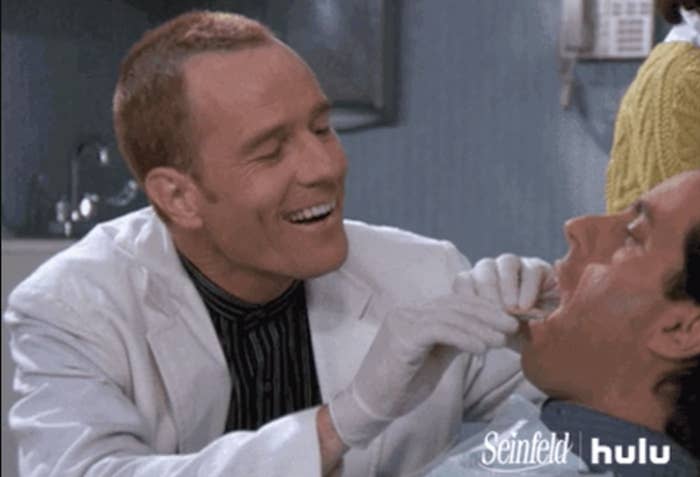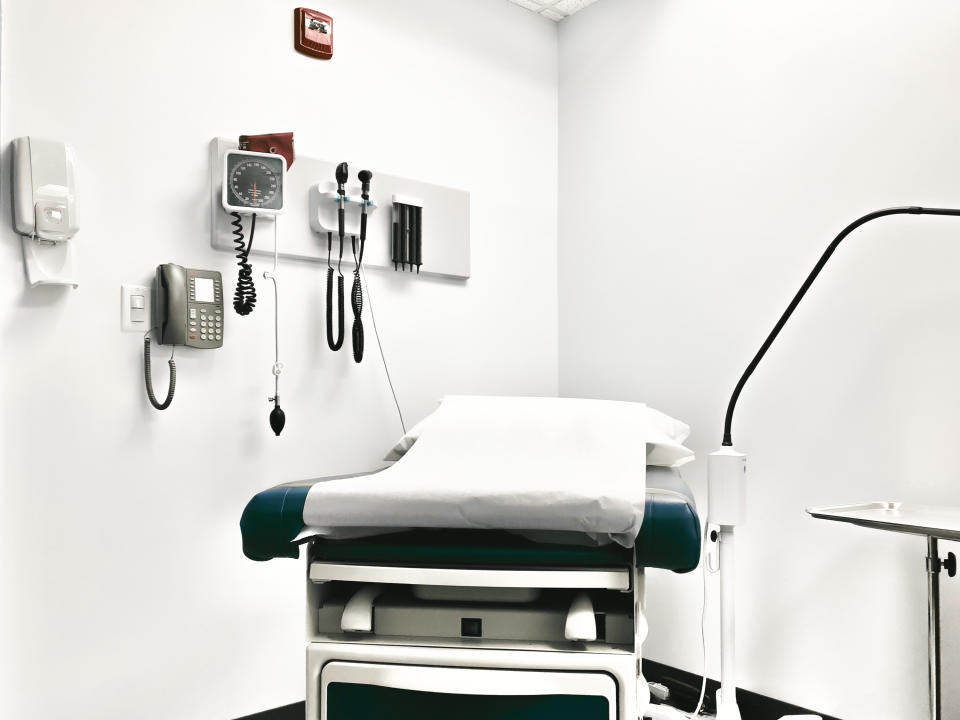"Don’t Let Someone Tell You It's Normal": Doctors, Dentists, Surgeons, And Other Medical Pros Are Sharing Important Tips We Should All Know
Taking care of your health should be a priority, but that isn't to say that figuring out which doctor to pick from a list of names, which hospital to go to in the event of an emergency, and so on isn't stressful.

So, I turned to the healthcare professionals of the BuzzFeed Community for a little guidance on this topic and asked: "What are some medical-setting red flags people should be on the lookout for?" Here are some important things to know.
Note: Some responses have been edited for length and/or clarity.
1."If a doctor orders an imaging test unless it’s urgent — meaning you need it done that same day — always make sure they got the approval from your insurance before you actually have it done. If you want to be extra sure, ask them for an authorization number and CPT (Current Procedural Terminology) or procedure code and double-check it with your insurance carrier, the radiology department, or the imaging facility where you’re having the test done.
"I’ve heard horror stories of patients going in for CT scans or MRIs thinking the ordering physician’s office obtained authorization from their insurance when in reality, the authorization request was pending at the time and later ended up being denied. The patient was left with a bill for thousands of dollars. And remember: It’s the ordering physician’s office’s responsibility to obtain the authorization, NOT the patient’s or the servicing provider."
—Mel, 30s, medical assistant
2."If you are going to have major surgery, research it yourself and look at trusted websites — not Wikipedia and not WebMD! Also, see if there are patients who have had the procedure that you can talk to. Sometimes, doctors need experience or want to 'sell' you on a procedure because they think it’s what you need, so they might hype it up and make it sound like 'rainbows and butterflies.' Knowing what to expect and what the complications could be doesn’t make it better, but at least you are prepared for what could happen."
—Anonymous

3."Any medical professional not taking time to listen to your worries is a red flag. I myself am a medical professional, and I cannot believe how many people come to my office frustrated and sad for not being listened to properly."
4."The emergency department is open 24/7, and we are happy to see you, no matter the reason. Trust your gut. If something does not seem right, come in! But please, try your best to give us a good medical history. We can order the most accurate tests and treatments based on that history. We do not care if you use drugs or alcohol. We just need to know what you do to help provide you with the best care."
—Anonymous

5."I work in oncology. I cannot stress how important it is to find providers, surgeons, and support staff who are empathetic! If they’re dismissive, silent, or just downright disrespectful to you — find care elsewhere. You’re more than a diagnosis and deserve to be treated as a human."
—24, Certified medical assistant
6."If you have really painful or heavy periods, don’t let someone tell you it is normal. I see too many people who have been told that it is normal for period pain to make them miss work, throw up, or pass out. There are several medical conditions that could be causing this, and there are several possible treatments. If your doctor doesn’t pay attention to you when you bring this up, find a new doctor who will listen."
—37, OBGYN
7."Make sure you are going to the proper facility for urgent and emergency care. I work in urgent care and get patients wanting to rule out a heart attack or stroke. Sometimes, patients are well aware of the differences between urgent care and an emergency department and think that they can avoid the ED visit. Other times, people don’t know the difference and limitations of urgent care."

8."A psychologist or therapist should not specialize in more than around three to five problems, disorders, specialties, or therapies. A red flag when looking for one is when they have a laundry list of problems they diagnose and treat. Real experts narrow in and develop a specialty, and these are the best people to see if you are looking for a specific type of treatment or need expertise in a specific diagnosis. Also, always check their certifications and the governing bodies that oversee them."

—Hart, 35, psychologist
9."Medical doctor here. If you leave a visit from us more confused than you were when you entered, we aren't doing our job correctly. I will say that most of our job is about explaining to people what's going on with them and why we're giving them whatever treatment we do. A couple of minutes of explanation saves hours of time later on."
—Anonymous
10."Observe how medical staff treat each other, especially those in higher positions, and how they interact with ones in lower positions. If someone acts like they are superior — run."
11."Your primary care physician should be VERY interested in your medical concerns and any new symptoms and be willing to answer any questions. Your PCP is key to any future reference for a specialist, so communication is very important. If you don’t have this relationship with your PCP, please change because I’ve seen medical conditions getting worse due to the PCP not 'catching it on time,' simply because they didn’t pay attention to the patient."

—Ivette, 35, community health worker
12."As a chiropractor, I want people to know they should never call an office looking for 'just the adjustment, not the exam.' What they mean by that is they just want to be treated, but they don’t want to have to pay for a new patient workup. I am here to tell you not to ever get treated in an office that is willing to do that. It is dangerous for the patient, and it can get the chiropractor’s license revoked, or worse. We are legally obligated to perform a full exam on any new patient, an existing patient that hasn’t been seen in over a year, or any existing patient that presents with a new injury. In fact, if we add a new diagnosis code to the patient’s insurance claim without also adding some sort of an exam code, it may flag their system. The rules exist for a reason, and this is to keep you safe."
—Lacey, 38, chiropractor
13."Read what you sign. You may have to pay for what your insurance doesn't cover. Or you might need authorization or referral. Or you might be releasing them to share your images or case details if it's a teaching facility. There are a lot of things buried in those forms. Take your time, and read it before you sign it."
14."If you don't vibe with your healthcare provider, you can always request a different one. You don't have to be stuck with someone who doesn't understand you or who isn't effectively treating you and your medical issues. If you ever need to complain, go straight to the hospital ombudsman. They are required to look into and investigate patient complaints. That way someone is aware of the issue of you aren't satisfied with your care."
15."If the dentist tells you that you have over five cavities, ask them to show you and explain their findings on the x-rays. Better yet, get a second opinion and have the office send your x-rays to the other office. Also, be wary if you are told you should have filings placed on worn chewing surfaces on your back teeth. Doing so impacts how you bite and can lead to some serious jaw issues."
—Shannon, registered dental hygienist

16."Don’t be afraid to advocate for yourself. Look up information from reputable sources prior to appointments regarding your symptoms and conditions. I’m a nurse and have an ongoing health issue I’m working on getting a diagnosis for, and it’s overwhelming. Especially for an 'invisible' illness. I had a doctor one time say I 'looked fine' when I had such severe joint pain that sitting at rest was painful. I can’t imagine how stressful it is for patients who are naive in working with the healthcare system."
17."Don’t be so angry with your nurses for not getting you water fast enough. Good chance they were saving a life next door. There is only so much one person can do for the load they’re given. Also, stay with your family if the hospital allows it and be as helpful as possible. It will make their stay way better. If we aren’t in the room all the time, it’s a good sign — it means your family member is the most stable."
18."A doctor should tell the patient what tests they are ordering, what the tests are for, and what to expect as far as getting the results of the test. I am a CAT scan tech, and I have several patients every day who come in for a CT scan, and they have no idea what I am scanning, the reason for the CT, or even which of their doctors has ordered the scan."

19."Disclose your allergies whenever asked, especially before surgery. I had a patient who signed forms to say she had no allergies, and it turned out that she was allergic to cobalt. And guess what her knee replacement was made from? Cobalt. I asked her why she didn’t tell them, and the patient said, 'Because they’re the doctors, and they should know. Why should I have to tell them?' They had to wait for it to heal to operate again, but it wouldn’t heal because she was allergic."
20."Find a doctor that listens to you. If you like to look things up online and want to discuss them, find a physician that is willing to talk about those things. No doctor should ever make you feel bad for asking questions."

21."I’m a mental health professional who works with involuntary clients under commitment in a locked state psychiatric hospital — but this advice goes for anyone seeking mental healthcare whether it's inpatient or outpatient: Never trust a therapist, psychiatrist, or psychologist who says anything even remotely disparaging about their other patients. Even if it seems to make you feel better or to ease your anxiety, like 'Trust me, you’re a cakewalk compared to some of these people,' it means they don’t have complete respect for the people they serve. I never, ever tell my clients that anyone else is easier or better than them, but that everyone has their own struggles, timelines for recovery, and healing process.

"Most importantly, I tell them that everyone I’ve worked with, regardless of what they’ve done, is a good person who had a terrible experience because of something they couldn’t control. If they don’t give you a message like that, try to find someone else to help you through whatever you’re going through.
"It can be incredibly taxing to empathize with those you treat, but if you can’t respect them at a human level, you have no business treating them, and patients 100% deserve better."
22."Any doctor that gets mad at you for wanting a second opinion, RUN. Good physicians know it is a team effort and won’t be offended if you want to see another specialist confirm their plan."
23."The patient MUST have been given informed consent before anything is done — meds, procedure, even a blood draw. This means the physician is required to explain the risks and benefits in layman's terms to the patient. If you as the patient don’t understand something, speak up. The medical team is required to explain everything to you in a way that you will understand. Don’t be afraid to tell them you don’t understand and for them to explain it again."
24."If you go to the doctor and they make a diagnosis without running any kind of tests first, this isn't a good sign. No doctor should be making any kind of diagnosis without confirming it by running tests. If you go to the doctor and they blame your complaints on your weight without even examining you or running any tests...not every medical complaint is related to weight. If you are a young woman and the doctor insists that your issues are related to pregnancy or your period and insist that there is nothing wrong...you know your own body. Don't even waste your time with such a healthcare professional; just go ahead and seek help elsewhere."

—Anonymous
25."A lot of times, patients or family members ask my opinion on various facilities or doctors. I can’t really tell you NOT to go to a specific place based on my opinion. If the medical staff doesn’t say much about a hospital, doctor, or nursing home when you ask, it usually means we don’t have anything nice to say."
—Kimberly, 31, paramedic
26."I’ve been an occupational therapist for 10 years. If you go to the doctor with shoulder, hip, or knee pain that has lingered for a long time and the MD wants to 'try steroid shots,' consider going ahead to schedule an orthopedic surgeon for their opinion because 9 times out of 10, you’re already past shots and need surgery anyway. No need to prolong it and have more or worse pain by waiting.”
—Jess, 38

